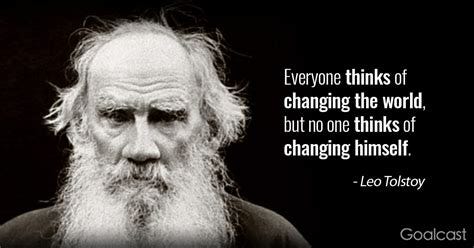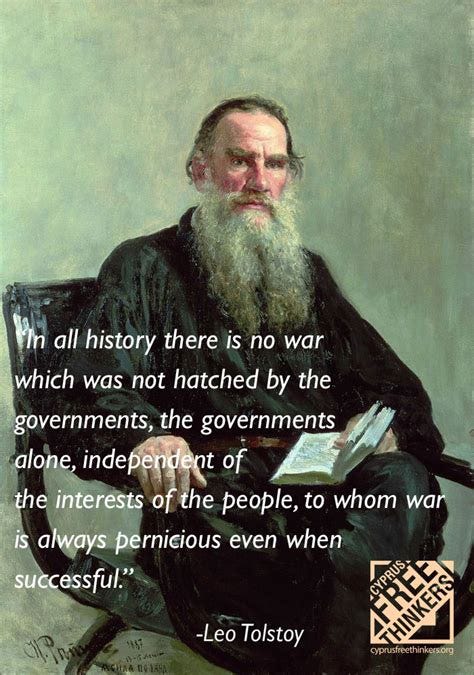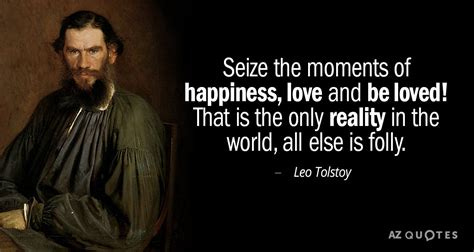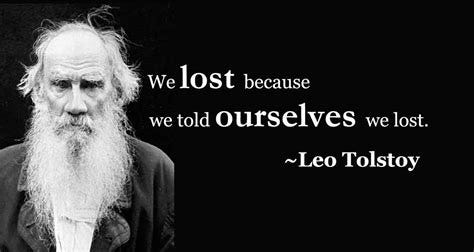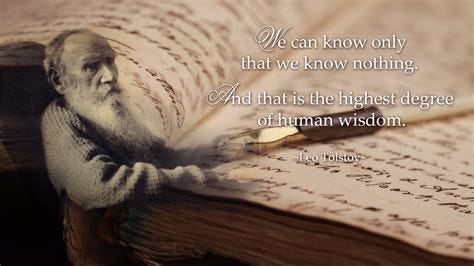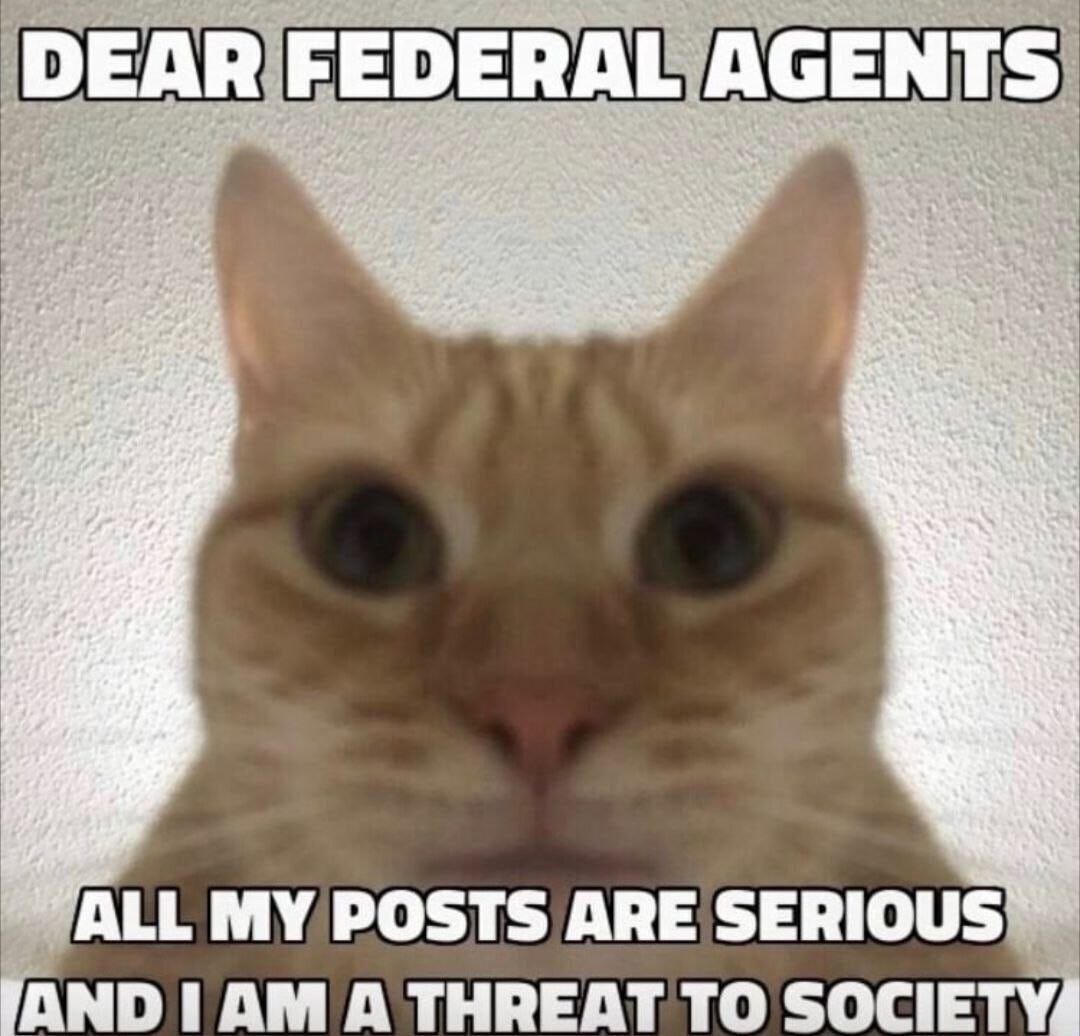Source: Real Clear Markets
Time to Read War and Peace by Leo Tolstoy
By John Tamny
audio version:
For mountain climbers, one imagines that Mt. Everest looms as the ultimate climb to validate one’s ability. For runners, it would be the Boston Marathon, for triathletes the Iron Man?
For readers, it’s no reach to say that Leo Tolstoy’s War and Peace is the Mt. Everest, Boston Marathon, or Iron Man of reading. Coming in at 1,358 pages comprised of tiny letters, just looking at the novel is to feel intimidated. Picking it up in no way reduces the internal discomfort.
No one likes to give up (see deaths on Everest, etc.), but it’s safe to say that more people have quit reading War and Peace than have completed it, after which it’s even safer to say that exponentially more people have purchased War and Peace than have ever begun reading it. It’s easier on one’s psyche to not open the book at all than to open it only to close it for good after just a few pages. Better to not have ventured than to have ventured only to quit, or something like that. At least it gives you deniability.
In my case, my excuse over too many decades was that fiction reading shouldn’t take the place of non-fiction. CBS radio host John Batchelor and work colleague Holden Lipscomb both indicated to me that quite a lot of War and Peace is Tolstoy’s thoughts on history. Excuse dashed! But wouldn’t the 500 or so characters in the novel make it impossible to follow?
British journalist Viv Groskop (author of the excellent The Anna Karenina Fix – an assessment of the most important Russian novels) pulled the rug out from under me there with her comforting words about how “Russian literature is accessible to all of us,” and not for some “secret society of special people.” From there the simple realities of age started entering the picture. Figuring that my time on earth is more than half over, the thought of exiting life without reading what so many deem the greatest novel of all time had me sweating.
Which meant I ultimately just opened the damn book. And was it ever good! Is it the best novel ever? My favorite remains Somerset Maugham’s The Razor’s Edge, which will surely disqualify me in the eyes of many readers. That is so because a biography of Maugham from a few years ago indicated that his truest devotees turned their noses up to Maugham’s most famous novel. It was and is hard to tell why, but supposedly the Maugham secret society favors The Painted Veil, among others, more.
So, while I’ll stand with Maugham, War and Peace was excellent. Just so engrossing, which it would have to be considering its length. At the same time, it’s different. As previously mentioned, a lot of the novel isn’t a novel as Tolstoy meditates on history. This novel doesn’t even end with the wildly interesting characters. More commentary from the author. My version of War and Peace was the Penguin Classics version, which Groskop and others recommend to the English speaking. About it, I kind of wish I’d read what came before it. It seemed too translated at times. Lots of lines like “get a move on,” “fine fettle,” and word usage like “anyway” that just seemed so out of place in a Tolstoy novel.
Tolstoy’s writing can be surprisingly corny at times, or did those corny qualities come out in the translation? At one point toward the novel’s end Prince Pierre Bezukhov dines in trying, unappetizing conditions, yet Tolstoy describes the eating as “Pierre could have sworn he’d never eaten better in his life.” Gag. Unknown is how much of this was Tolstoy, or the perception of Tolstoy from the translator. Whatever the answer, don’t be deterred based on fear of translation or the number of characters. War and Peace isn’t hard to follow, nor are the characters difficult to keep track of.
The answer is to make time to read this most important of novels. In my case I committed myself to 20 pages each morning after getting up an hour early. At 140 pages/week you can be done in 2 ½ months. But realistically less than 2 ½ months, and that is so because the novel is once again excellent. Very quickly you’ll want to read more than 20 pages per day. The other piece of advice is to purchase the hardcover version. We’re again talking 1,358 pages. Hardcover is much easier to hold.
The purpose of this overlong write-up is to analyze the novel. Since no one reads the same book, there can’t be too many analyses. Particularly of a novel seen by so many as the greatest. In my case, reading Tolstoy was to read someone who came off as very much a free thinker. Were he alive today, my guess is that Tolstoy would be a libertarian hero. He thought like they think. I’ll for the most part focus on his free-thinking qualities, but certainly not exclusively. There’s much to comment on.
War and Peace is largely a story about Russian royalty and their lives that are occasionally interruped by the horrors of war. Tolstoy himself was royalty, so he knew of what he wrote. And he made it glamorous. He described looks so well. About the remarkably beautiful Princess Liza Bolkonsky, he wrote that her most notable “defect” was “a distinctive and beautiful feature.” He described defective facial qualities as the norm with “the best-looking women.” So breathtaking was Princess Liza that just to talk to her was to walk away “full of bonhomie.” These little details rate mention as a way of conveying to the reader just how descriptive Tolstoy’s writing is, and how much it elicits imagination about those he describes. About the staggeringly beautiful Princess Helene, Tolstoy writes that it was “as if she wanted to tone down the effect of her beauty, but couldn’t do so.”
Tolstoy’s detailed description of the appearance of his characters carries greater relevance as he goes deeper into the reality of life. Here is why Groskop and others recommend reading War and Peace at different times in life. Depending on when you read it, it will mean different things. If you’re a parent the passages on children will mean more, if you’re politically attuned Tolstoy’s comments about the powers-that-be will mean more than if you’re not, or not yet. If you’re married, his writing about the latter will have relevance that it may not carry if you’re reading the book as a single college student. For instance, in writing about marriage early on you see the admonition “never, never get married” until “you can see her clearly.” The beauty of women in the novel is overpowering, clearly intoxicating, but we learn through the novel’s primary characters (Prince Pierre Bezukhov and Prince Andrey Bolkonsky) and their unhappy marriages with Helene and Liza respectively that surface qualities can sometimes (not always as readers will realize) obscure unhappier realities.
Pierre knew before he was locked into his marriage proposal by Helene’s father (Prince Vasily Kuragin) that his would be doomed, and it was soon obvious to all around him that his was. Andrey was more in denial, only for his very difficult father (Prince Nikolay Bolkonsky) to pose a question with a comment to his son: “Bad business, eh?” “What is, father?” “Wife!” “I don’t know what you mean.” “Can’t be helped, dear boy, they’re all like that, and you can’t get unmarried now. Don’t worry, I shan’t tell anyone, but you know it’s true.” Is what Prince Nikolay contends still true now?
To the above some might ascribe to Tolstoy chauvinistic qualities for his comments on marriage as problematic due to “Wife!” Not so fast. Through Countess Vera Rostov we get the other side, or at least the other side through the man she’s married to, that all men are “conceited and self-centred, each convinced that he was the only one with any sense whereas he didn’t actually understand anything at all.” Furthermore, Pierre, Nikolay Rostov, Anatole Kuragin, Alphonse Berg and many other males are surely no pieces of cake.
Tolstoy reveals skepticism about love, romance, and marriage through his characters, but was seemingly conflicted. Consider how he describes Princess Natasha after Pierre visits late in the novel: “Everything about her face, her walk, her eyes, her voice – was suddenly changed.” And for the much better. It only raises questions insofar as Tolstoy is surely unsure about love and marriage, but also contends in perhaps corny fashion that it has a transformative impact on people. Through Prince Nikolay Rostov, we get “We’re not loved because we look good – we look good because we’re loved.”
Back to Pierre; though he most certainly has heroic qualities in the novel, he’s terrible at life. He thinks Helene an awful, cheating wife, but Pierre doesn’t know how to be a husband. As she explains it to him on the matter of her enjoying the company of other men (sans affairs at this point), “If you were brighter and a bit nicer to me, I should prefer yours.”
From there Pierre, the illegitimate son of Count Kirill Bezukhov, but who inherits the Count’s vast and landed fortune early on, is a classic limousine liberal – early 19th century edition. Indeed, it’s through Pierre that one gets a sense of Tolstoy’s policy views as right-leaning, or libertarian. Having inherited estates throughout Russia, and feeling guilty for having done so, Pierre started instituting all sorts of feel-good reforms meant to improve the lives of the peasants on his properties. They were feel-good for him only, however. As Tolstoy went on to write, Pierre “did not know that as a result of his orders to stop sending nursing mothers out to work on the master’s land, those same mothers had to work even harder on their own patches of land.”
Pierre had stone buildings going up for hospitals, schools, and alms-houses, but he did not know that those buildings were being put up “by his own workers, which meant an actual increase in the forced labour of his peasants.” He imagined his peasants were enjoying “a one-third reduction in rent,” but was unaware that the latter came to them as their “compulsory labour had gone up by half.” So, while Pierre returned from a tour of his estates “delighted and fully restored to the mood of philanthropy,” the actual reality was that his peasants “went on giving in labour and money exactly what other peasants gave to other masters – all that he could get out of them.” Compassion is brutal.
Prince Andrey is Pierre’s opposite. Call him an elite with common sense. Andrey is a skeptic. While Pierre wants to build schools so that the peasants can be educated like he is, Andrey seems to recognize that education can’t be decreed as much as it’s an effect. In Andrey’s words, “you’re trying to turn him into me, but without giving him my mind.” George Gilder comes to mind here. As he put it in Wealth and Poverty, “decent housing is an effect of middle-class values, not a cause.” Precisely. Pierre felt he could improve people in his own elitist image just by spending money, and building hospitals and schools. But as is so often the case with do-gooders in possession of shallow thought processes, the joke was on Pierre.
The seemingly corrupt steward of his properties knew that Pierre “would probably never even ask about the buildings, let alone find out that when they were finished they just stood empty.” Members of the right refuse to come to terms with the reality that truly good schools are an effect of conscientious students and demanding parents far more than they are of competition.
Back to Prince Andrey, he actually got real things done. As written by Tolstoy, “All the innovations introduced by Pierre on his estates without any concrete results, because of his continual flitting from one enterprise to another, had been carried through by Prince Andrey privately and without any noticeable effort on his part.” Tolstoy goes on to write that Andrey “possessed in the highest degree the one quality that Pierre totally lacked: the practical application to get things going with no fuss or struggle.” Sorry, but it’s no reach to say that Tolstoy was making large policy pronouncements well beyond those about war in the novel, and this included the long-expressed libertarian view that the road to hell is paved with good intentions.
As a side note, but perhaps relevant to the time in which we live, in writing about Pierre and his estates Tolstoy writes of many in Kiev and Odessa. Both cities are part of Ukraine today. It’s just a comment that at least historically, Ukraine was part of Russia. This isn’t a defense of what Vladimir Putin is doing as much as it’s a comment that the Western view of Ukraine vis-à-vis Russia is surely different and much less nuanced than it would be over in Russia and Ukraine. More on this later on.
About war, Tolstoy had lived its horrors up close in the 19th century’s Crimean War. The free thinker in him plainly hates it, as does the lover of life in him hate it. Yet he’s conflicted. Not about the shocking stupidity of war (that’s a given), but conflicting feelings for men who enter battle. While Tolstoy is clear that the feeling of danger is one that combatants neither enjoy nor ever get used to (“you never get used to danger”), he writes through Andrey’s first taste of battle the odd exhilaration of it all: “God, I’m scared, but it’s marvelous.” Combat also had a transformative, confidence-boosting impact on Count Nikolay Rostov. Still, Tolstoy’s descriptions of war are mostly about its horrors.
Describing the initial entry into the shooting, he writes of “one step across the dividing line” and “you enter an unknown world of suffering and death.” It’s all so cruel. Though Rostov is weirdly energized by combat (well, he survives Austerlitz in 1805), he knows the ephemeral nature of it all: “one flash, and I’ll never see that sunshine, that water, that mountain gorge ever again.” Alexander, Tsar of Russia, comments on “what a terrible thing war is.” Alexander is mentioned here as a way of reminding readers that there are the fictional characters (Pierre, Andrey, etc.), but also real people. Alexander was the actual Tsar of Russia, Napoleon (“I have opened my antechambers to them, and the crowds rushed in…” – kind of a Trumpian line?) is the very real leader of France seeking world domination, Generals Bagration and Kutuzov (among others) were real Russian generals. This is brought up to remind readers that War and Peace is a novel written around actual history through the eyes of Tolstoy.
Back to Prince Nikolay Rostov and combat, as mentioned he survives his first brush. Even better for him, in the fog of war he actually thrives. He emerges a hero of sorts, but Tolstoy is clearly of the belief that war heroism is much more a consequence of random chance and luck than of skilled fighting born of plan. More on the latter soon enough, but for now it’s essential to note Tolstoy’s very illuminating contention that everyone fibs about exploits on the battlefield. He conveys this through Nikolay’s description of his own alleged heroics, that though he “set out with every intention of describing exactly what had occurred,” he “unconsciously and inevitably” “drifted into falsehood.”
Later on Tolstoy returns to this narrative, that “everybody lies” about battle, while to some degree defending the fibs because “everything happens on a battlefield in a way that totally transcends our imagination and power of description.” “Inevitably” and “everybody lies” stand out here. It had me thinking of John Kerry and all the “Swift Boat” controversy from the 2004 presidential election. Did Kerry lie, or did some of his former swift boat mates lie about him, or is the actual truth somewhere well in between? The view from here at the time was that while no fan of Kerry, it’s hard to fake combat. It seems Tolstoy would agree. To read Tolstoy’s analysis of the horrors of combat was to wonder how he would have analyzed the Kerry situation.
Beyond the lies that invariably emerge from what’s indescribable, it’s not enough to just say that Tolstoy plainly despised war. To say that is shooting fish in a barrel. With Tolstoy there’s something much more deep-seated. It’s not just that he’s mortified that “Millions of men set out to inflict on one another untold evils,” that (the time he’s writing about is 1805-1812) “millions of Christian men should have killed and tortured each other just because Napoleon was a megalomaniac, Alexander was obstinate, the English were devious and the Duke of Oldenburg was badly done by,” that “Millions of men” would abandon “all human feelings and common sense to “slay their fellows,” Tolstoy was also explicitly revolted by how these mortifying acts of untold evil were explained in history books. Since war defies description for reasons too obvious to repeat, Tolstoy was using War and Peace to tell readers that the “so-called ‘great men’” of war that populate history books as heroes are in reality “nothing but labels attached to events; like real labels, they have the least possible connection with events themselves.”
Notable about heroism as expressed through the characters, Prince Nikolay Rostov’s continue, including a “brilliant exploit” on the battlefield that won him “St. George’s Cross and a heroic reputation,” but the achievements had unearthed in him quietude and preoccupation. He couldn’t get a French officer whom he’d almost killed amid the alleged heroics off of his mind. Having succeeded in the highest of Russian ways in the slaughter that is war, Rostov asks himself if “this is what they mean by heroism? Did I really do it for my country? And what has he done wrong with his dimple and his blue eyes? He was so scared! He thought I was going to kill him. Why should I want to kill him?” While visiting a hospital packed with desperately wounded soldiers and officers, Nikolay asked “what were all those torn off legs for, and why had those men been killed?”
Ultimately the horrid combat at Bordolino in 1812 resulted in tens of thousands dead, along with grass and earth that were “soaked with blood.” All for what? The French had won in total dead and in Napoleon having the troops and means to continue on to Moscow, but only at the expense of horrendous loss for his troops and their morale. It speaks to how body counts are a flawed way to measure battlefield success. The Russians had essentially won for not losing as badly as they should have, and not losing as badly as they should have was rooted in the Russians giving almost as good as they got. Call Borodino Ali vs. Frazier (look it up!) whereby the “The men on both sides, exhausted and in need of food and rest, began to have the same kind of doubts about whether they should go on slaughtering each other.”
And once again, for what? To be clear, these questions aren’t the idealistic wails of a newcomer to Tolstoy, nor should they be construed as Tolstoy’s own. As stated earlier, to hate war is in a sense the easy part. Tolstoy chose to feature the hatred through his characters, but to seemingly look beyond it in asking why. What was gained?
This rates particular mention as applied to Napoleon since he did eventually press on to Moscow, only for the latter to be his undoing. Did this speak to the genius of the Russians? Tolstoy is clear that it did not. As he put it, “The whole thing was a fluke.” The Russians didn’t beat Napoleon and the French as much as Napoleon got greedy or whatever with his vision of a global empire that spanned west to east. The problem was that by the time they reached Moscow, there were no Russians to fight. They lacked the means to continue fighting, while the French troops were softened by their time in Moscow. No genius on either side.
No doubt the Russians lacked the means and the will to continue fighting, but this once again wasn’t brilliant strategy on the part of the Russians as much as it was reality. Luckily it worked in their favor because in the words of Tolstoy, “it made no sense to risk losing men to destroy the French army when that army was busy destroying itself without any help from outside.” He adds that the “main reason for the reduction in Napoleon’s army was the sheer speed of retreat” in difficult conditions. Bad luck for the French, but good luck for the Russians. Essentially Napoleon was finally exposed as much less than the “Emperor” that so many thought him (including the Russians) to be. No heroism, just dumb luck interspersed with unparalleled stupidity at times from both sides, with seemingly disposable men the victims of all the stupidity. Really, why conquer for plunder at the cost of so much blood and treasure when peaceful trade allows for the “taking” of so much more wealth in return for the creation of wealth, all without wanton killing?
This looms particularly large with Napoleon’s planned arrival in Moscow very much in mind. Tolstoy writes that “Napoleon was carried away by the attitude of magnanimity which he had every intention of striking in Moscow,” only for the news to reach him ahead of time that “Moscow was empty.” Yes, the Muscovites had left. Which means what made the city great and prosperous, and more importantly what made it desirable to Napoleon, was bereft of the human spirit that made Moscow, Moscow. It’s entirely possible this is your reader seeing what he wants Tolstoy to have seen, but an empty Moscow is in so many ways the most perfect critique of war.
All that fighting, all that maiming and dying for what? It’s not just that war is so inhumane, that it’s so mindless, that it’s so anti-mind for snuffing out humanity, it’s also that it runs at totally opposite purposes to its stated goal of getting. Napoleon once again wanted a west-east spanning empire with Moscow the proverbial jewel in the eastern crown, but there’s no Moscow without the people who made it, and the people wouldn’t be there because it “was just not possible to live under French rule.” It’s all a long way of saying that a free thinker like Tolstoy hated war for all the traditional reasons, but clearly went beyond the traditional in his unrelenting commentary about just how contrary to the alleged purpose of war, war is.
The view here is that “Moscow was empty” has lessons for modern times. The easy part first. Stating what is probably obvious, but how very uncivilized and animalistic Vladimir Putin is to try and acquire Ukraine through bombs and guns. What a primitive approach to conquest, how very 18th and 19th century of him, at which point we point out via “Moscow was empty” that conquering with guns and bombs is anti-people and property, thus defeating the purpose of conquering.
At the same time, consider the embarrassing actions of a political class intent on destroying TikTok, or at the very least forcing a sale of it so that it’s no longer run by the Chinese. Ok, but TikTok isn’t TikTok without its creators. Sorry, but it’s true. Just as conquering Moscow didn’t mean nearly as much without the Muscovites, taking TikTok by force will render it much less than itself without those who created it.
About what’s been written, some might say it’s projection; in this case projection of my own thoughts on Tolstoy. Maybe, but the examples are there. It’s no reach to say his hatred of war extended well beyond the obvious, and into the sheer stupidity of wasting lives and wealth for greatly reduced fruits.
Returning to policy, or at least thoughts about how Tolstoy would approach policy were he alive today, there’s an aside a little more than halfway through War and Peace about how “A Russian is self-assured because he knows nothing, and doesn’t want to know anything because he doesn’t believe you can know anything completely. A self-assured German is the worst of the lot, the most stolid and the most disgusting, because he imagines he knows the truth through a branch of science that is entirely his invention, though he sees it as absolute truth.”
The above passage emerged from Tolstoy’s description of the battle plans and battle theories espoused by the various generals from different countries in the battles waged against Napoleon, but it was hard not to think about how the modernly supercilious use “science” to dismiss the vast majority of thought and reason. In the novel, it was a Colonel (eventually General) Ernst von Pfuel in service to the Russians, and who “positively rejoiced in [battle] failure, because failure was due to practical infringements of his theory, which went to show how right his theory was.” Von Pfuel “had his science,” he “knows the truth through a branch of science that is entirely his invention, though he sees it as absolute truth.” Which was license for him to dismiss everyone else. Prince Andrey wasn’t impressed. He wondered “What kind of theory and science can there be when conditions and circumstances are indeterminate, and can never be defined, and the active strengths of the warring parties are even more indefinable?” From this it’s hard not to conclude that were he around today, Tolstoy would be a skeptic about the remarkably confident “science” that informs the theory of “global warming.”
He just seemed to think there was a natural way of things. Consider the aforementioned emptying of Moscow. The city burned in the aftermath. As Tolstoy described it, “Once her inhabitants had gone away, Moscow was bound to burn, just as a pile of woodshavings is bound to catch fire if you scatter sparks all over it for days on end.” A possible projection, but forest fires to this day are controversial despite being inevitable, and almost certainly a sign of earth bettering itself.
With the arrival of the French in Moscow, “word went round that all government offices had been evacuated from Moscow,” all of “which inspired Shinshin’s much-repeated joke that at last Napoleon had given Moscow something to be grateful for.” About Count Rostopchin, the governor general of Moscow, Tolstoy couldn’t have been more disdainful. It spoke to a disdain for government, and government doing things. Along these lines, consider Rostopchin’s actions as he was getting ready to depart Moscow. There was an accused traitor by the name of Vereshchagin, who supposedly had trafficked in propaganda favoring Napoleon. Rostopchin knew the charges were somewhat trumped up, but still allowed Vereschagin to be beaten to death by public mobs in the most savage of ways. “Kill him,” Rostopchin yelled, and this small in thought political elite yelled those words despite knowing that “I needn’t have said them, and then nothing at all would have happened.” But he incited the mob anyway with the most hideous of excuses in retrospect: “I didn’t do it for myself. I was duty bound to do what I did. The rabble…the traitor…the public good.” “It is because of him [Vereschagin] that we are losing Moscow.” This little known pamphleteer brought us our problems, so Rostopchin sickeningly riled up the masses for, yes, “the public good.” Don’t worry, there’s more.
In analyzing the worthless Rostopchin before the cruel massacre of Vereschagin, Tolstoy observed that “In moments of untroubled repose every administrator feels that the entire population working under him is kept going only by his efforts,” but “the moment a storm comes up, with the sea heaving and the ship tossing about, this kind of delusion becomes impossible,” only for the formerly essential (in his own mind) political type to find “himself transformed into a creature that is pathetically useless.” Please don’t tell me Tolstoy wasn’t libertarian in thought.
He also recognized that the “activity of the poor people” and “prices” were “the only two social indicators that reflected the position Moscow was in” as the arrival of the French became imminent. Tolstoy wrote that the “prices of weapons, horses and carts and the value of gold rose steadily, while the value of paper money and household goods was in steep decline.” Like Ludwig von Mises and so many other free thinkers, Tolstoy was pointing out that during times of uncertainty, there’s a flight to tangibles.
Tolstoy’s view of money and prices as indicators of bigger things also applied to his view of history. He felt it invalid. “The moment historians of different nationalities and attitudes begin to describe the same event, the answers produced loose all kind of sense.” Tolstoy felt history was like “paper money” in a sense. “Biographies and national histories are like paper money,” wrote Marc Bloch. “They can pass and circulate, doing their job without harming anyone and fulfilling a useful function, as long as no one questions the guarantee behind them.”
But just as “nobody is going to be deceived by a hard coin made of low-value metal,” history will only be valuable insofar as historians can explain history reliably.
Did Tolstoy? It’s difficult to say. One guess about why War and Peace reached 1,358 pages is that Tolstoy himself wasn’t sure. This may explain lengthy, and seemingly repetitive commentary on history, along with an end to the character (Pierre, Andrey, Marya, Natasha) part of War and Peace that was so sudden, and that really wasn’t an ending. The novel goes from conversations between Pierre and Natasha and Nikolay and Marya before switching in the final 30 or so pages to more meditations on history given Tolstoy’s call to “change a working note for the pure gold of a valid concept.” Tolstoy got gold, while it’s unknown if he got history. It will just be said here that his analysis of history is surely compelling.
As is his love of liberty. Toward the book’s end, Tolstoy wrote that “To imagine a man without freedom is impossible except as a man deprived of life.” So true. Imagine if Tolstoy had lived to see what his beloved country had been reduced to. The free thinking libertarian would have been horrified, all the while well aware of why what became the Soviet Union imploded. Do-gooder types and self-regarding politicians (a redundancy, obviously) break things with poverty and blood-soaked battlefields the result. War and Peace makes this all very clear.
About the author:
John Tamny is editor of RealClearMarkets, Vice President at FreedomWorks, a senior fellow at the Market Institute, and a senior economic adviser to Applied Finance Advisors (www.appliedfinance.com). His latest book is The Money Confusion: How Illiteracy About Currencies and Inflation Sets the Stage For the Crypto Revolution.
Ways to connect
Telegram: @JoelWalbert
Email: thetruthaddict@tutanota.com
The Truth Addict Telegram channel
Hard Truth Soldier chat on Telegram
Mastodon: @thetruthaddict@noagendasocial.com
Session: 05e7fa1d9e7dcae8512eed0702531272de14a7f1e392591432551a336feb48357c
Odysee: TruthAddict
Donations (#Value4Value)
Buy Me a Coffee (One time donations as low as $1)
Bitcoin:
bc1qe8enf89g667dy890j2lnt637xqlt9wvc9f07un (on chain)
bc1qnqjdudgc0qr5yfrp826nxes8kljf9p07mwt3q3yjrd6gqwj0lqtswmy39s (lightning)
nemesis@getalby.com
joelw@fountain.fm
+wildviolet72C (PayNym)
Monero:
43E8i7Pzv1APDJJPEuNnQAV914RqzbNae15UKKurntVhbeTznmXr1P3GYzK9mMDnVR8C1fd8VRbzEf1iYuL3La3q7pcNmeN



